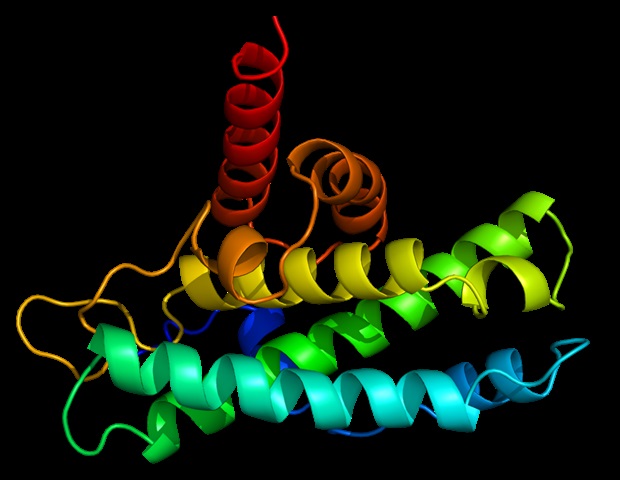Blog
The oil-based solution allows protein drugs to be stored at room temperature
A new storage technique could ensure the stability of protein-based drugs and vaccines without having to store them at low temperatures. The discovery, led by Penn State scientists, could eliminate the need to refrigerate hundreds of life-saving drugs such as insulin, monoclonal antibodies and viral vaccines.
“More than 80% of biologics and 90% of vaccines require temperature-controlled environments. This approach could revolutionize their storage and distribution, making them more accessible and affordable for everyone,” said Scott Medina, principal investigator of the study and William and Wendy Korb Early Career Professor of Biomedical Engineering at Penn State.
This would save billions of dollars currently spent on keeping these products cold throughout the supply chain and potentially enable the use of protein therapies in environments where constant refrigeration is not possible.”
Scott Medina, principal investigator of the study, and William and Wendy Korb Professor of Early Career Engineering, Biomedical Engineering, Penn State
The research results were recently published in the journal. In a series of experiments, the research team replaced an aqueous solution commonly used in protein drugs with perfluorocarbon oil and tested five different proteins with a range of health-related functions, such as antibodies and enzymes.
Tests on mice showed that the new solution was as effective as refrigerated versions and showed no signs of toxicity, meaning the oil-based solution did not cause any negative health effects.
The researchers also found that the oil-based solution was naturally sterile for the protein samples, noting that they could not have been contaminated by bacteria, fungi or viruses that require an aqueous environment to grow and survive.
There was one problem: proteins in aqueous environments spread evenly throughout the liquid. They’re not as soluble in oil, Medina explained. Therefore, the team developed a surfactant – a molecule that covers the surface of the protein – to protect the protein’s surface in a way that allows it to be evenly dispersed in the solution.
The surfactant also formed a protective coating around the protein, keeping it stable and preventing breakdown even at temperatures up to 212 degrees Fahrenheit, which would normally cause water to boil.
“Think of it as raincoats for proteins,” said Medina, who is also affiliated with Penn State’s Huck Institutes of the Life Sciences. “Just like a raincoat keeps you dry, this protective coating protects the protein from heat and contaminants so it remains stable and functional.”
Protein-based drugs and vaccines are typically sensitive to heat, light and movement, which can cause them to lose structure and function over time, Medina explained. Refrigeration helps slow the degradation process so that the medicine remains effective until it is administered.
“At high temperatures, proteins will start to unfold and become inactive,” Medina said. “The unfolding occurs because as the temperature increases, the energy of the water molecules will tear the protein apart and unfold it. For this reason, protein therapies often need to be stored in refrigerators or freezers to prevent this development.”
Medina said these findings have the potential to reduce or eliminate cold chain logistics, the supply network necessary to get therapies from where they are manufactured to various distribution centers before they are administered to patients.
In 2020, another team of researchers found that cold chain logistics will cost $58 billion globally by 2026.
“If something goes wrong, the protein therapy may be lost, the drug will no longer be effective, or it may become contaminated, which could potentially cause harm to patients,” Medina said.
The researchers said their approach has the potential to reduce costs and barriers for pharmaceutical companies, which could lead to greater savings and better access for patients who need these therapies.
“This new method could also lower barriers and enable drug distribution to all populations in settings at risk of resource loss,” Medina said. “We could even apply this to people on the battlefield where therapies would be needed but access to refrigeration facilities is limited.”
In the future, the researchers plan to demonstrate that their method works with additional proteins and partner with pharmaceutical companies to stabilize protein or peptide molecules that can be used in a range of drugs.
“We are currently in the process of securing patent rights and hope to partner with pharmaceutical companies to make their protein products more stable and available,” Medina said.
The team includes Girish Kirimanjeswara, associate professor of veterinary and biomedical sciences; Atip Lawanprasert, Mariangely González Vargas and Arishya Dewan, Penn State graduates; and Harminder Singh, PhD student; and Sopida Pimcharoen, undergraduate student. This work was funded by the Defense Advanced Research Projects Agency.
Source:
Magazine number:
Lawanprasert, A., . (2024) Thermally stable and internally sterile liquid protein formulations. . doi.org/10.1038/s41467-024-55304-9.

